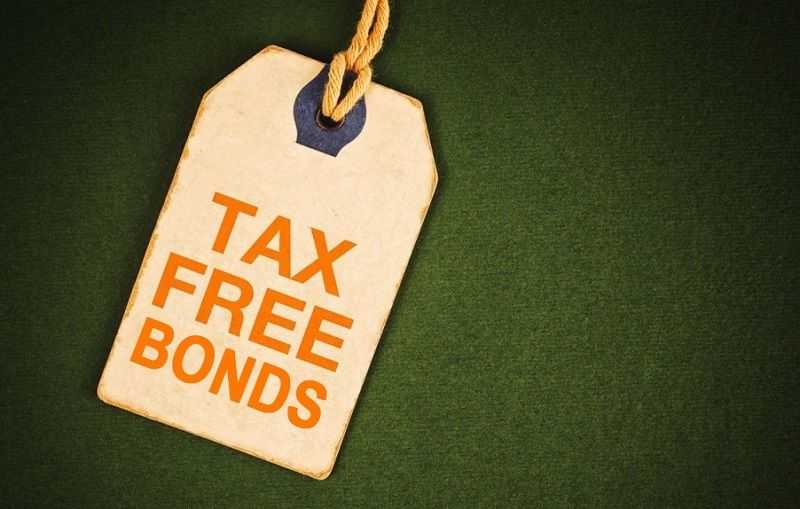The concept of Tax free Bonds
A government entity issues tax free bonds to collect funds for a specific reason. Municipal bonds, for example, are a type of bond issued by municipalities. They have a fixed rate of interest and rarely default, making them a low-risk investment option.

What separates tax free bonds from other types of bonds?
Tax-exemption
The interest income from tax free bonds is fully tax free. Furthermore, these bonds are exempt from TDS (tax deducted at source). However, since the principal sum invested in tax free bonds does not count for a tax deduction under Section 80C, it is advisable to report the interest income.
Tax-free bonds are available in both physical and electronic form. As opposed to bank FDs, tax free bonds have a more tax-efficient return for investors in the highest tax brackets.
Risk factors
Since these schemes are issued on behalf of the government, the chances of default on principal and interest payments are extremely low. It also provides capital insurance as well as a predictable monthly or annual income. As a result, it is relatively risk-free.
Liquidity
Tax free bonds cannot be liquidated as easily as debt mutual funds, for example. Liquidation of tax free bonds can be difficult due to the fact that government bonds are long-term assets with longer lock-in periods.
Lock-in tenure
The lock-in period for tax free bonds is longer, ranging from 10 to 20 years. You are unable to withdraw your funds prior to the maturity date. As a result, please ensure that you will not need this money soon after investing.
Issuance & transaction
Tax free bonds can be purchased online or in person using a Demat account. To meet short-term financial targets, you can purchase tax free bonds on the secondary market.
Returns
The return on these bonds is largely determined by the purchase price. This is due to the fact that they are traded in small quantities with a small number of buyers and sellers.
Interest
When considering the tax exemption on interest, the rate of interest paid on tax free bonds typically varies from 5.50 percent to 6.50 percent, which is very appealing.
The interest is paid to the bondholder once a year. The prices, however, are subject to change because they are linked to the current rate of government securities. If you invest in tax free bonds at current rates, you will get a 6% tax free return.

Why Should You Invest In Tax free Bonds In India?
In India, there are only a few instruments in which the interest received by investors is tax free. The Public Provident Fund is one of them, while the interest received on the Employees Provident Fund is the other. However, in order to receive tax free income from the EPF, one must not withdraw the funds for a period of five years. Tax free bonds are another instrument that provides tax free interest income in India.
Many companies were permitted by the government of India a few years ago to provide interest income that was tax free via tax-free bonds. Any of the businesses that issued tax free bonds did so for ten, twenty, or twenty-five years. The REC, HUCDO, Indian Railways Finance Corporation, Power Finance Corporation, and others were among the most prominent. It’s worth noting that these are all government-owned businesses.
Click here to check out Credit Calculators.
Why should you invest in tax free bonds?
As previously stated, if you purchase tax -free bonds, the interest you receive is tax free. Many of these businesses pay interest on the bonds once a year before they reach maturity. As an example, suppose you have a State Bank of India fixed deposit. The interest you receive on this deposit is added to your net income and charged accordingly. Profit earned on tax free bonds, on the other hand, is not taxed.
Where we can buy tax free bonds and what is the interest rates?
You can purchase tax-free bonds if you have a trading and demat account for buying stocks. You can buy bonds and keep them in your demat account in the same way you can buy stocks and hold them in your demat account. These tax free bonds are traded on the BSE and NSE in the same way as stocks are.
Let’s take a look at an illustration and expand on it. The Indian Railways Finance Corporation’s NA series of bonds pays an annual interest rate of 8.65 percent that is tax – free. The interest is paid every February, and the bonds are due to mature in 2029. While the interest rate is 8.65%, the bonds are priced at Rs 1,250, so the yields are lower.
Let’s look at another example: the REC N5 series of bonds pays an annual interest rate of 8.01 percent in the month of September. The bonds are set to expire in September 2023. The bonds, however, are priced at Rs 1341, bringing the yields down to 5.92 percent.
One must first assess their own taxable status before applying for tax free bonds. It makes sense to purchase tax free bonds if you are in the highest tax bracket and are having even post-tax yields of 5%.
However, it is not advisable to purchase large quantities of tax- free bonds because they can be difficult to liquidate. So, stick to smaller volumes, but after analyzing the yields on different series, you can buy them.
Source: https://www.goodreturns.in/classroom/how-and-why-to-buy-tax-free-bonds-in-india-1209445.html
For more blog, please visit: https://creditcalculators.org/






